- Fashion
How Santa Got His Red Outfit
- ByRadhika Bhalla
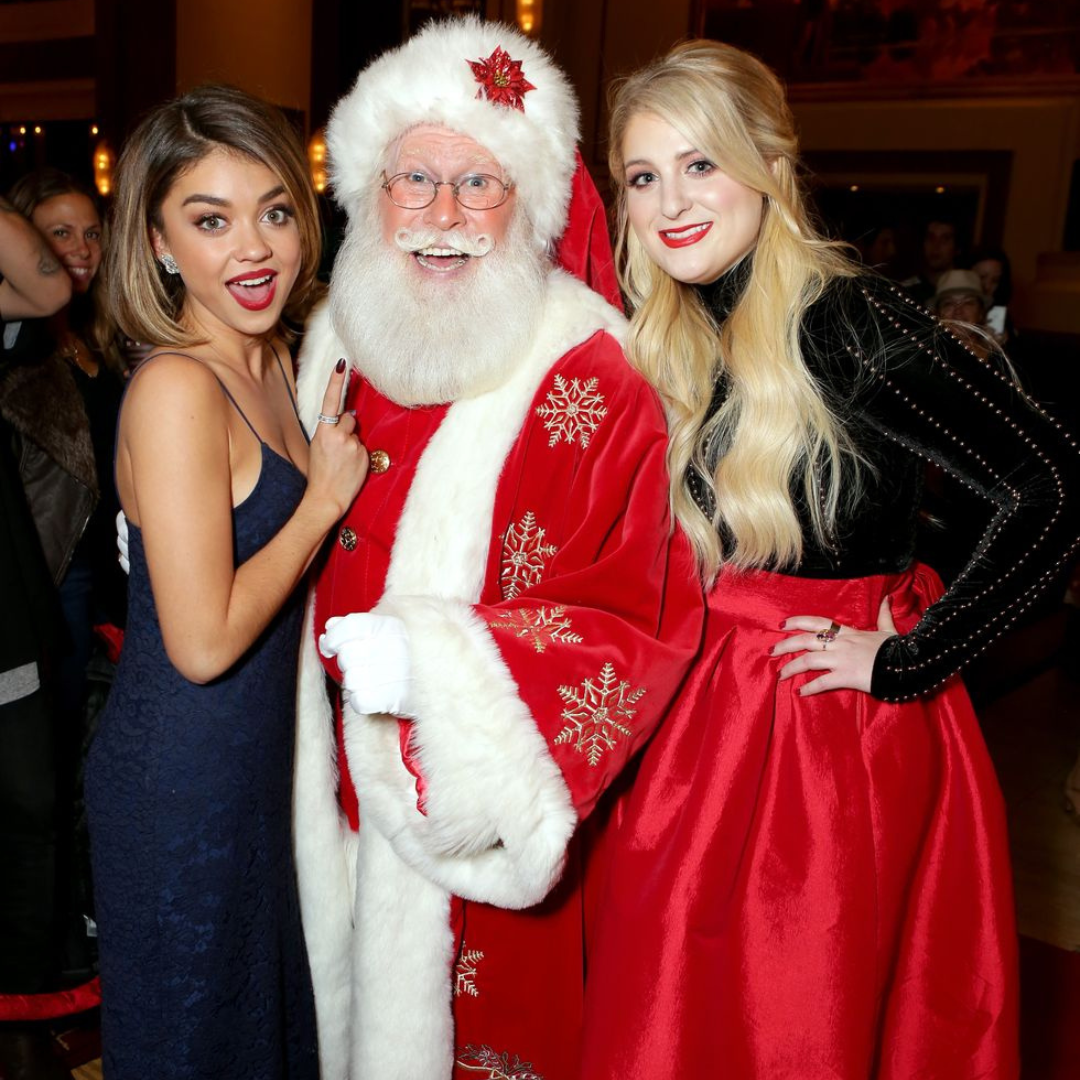
Santa Claus wasn’t always the jolly old man in his bright red suit, trimmed with white fur. In fact, Santa’s beginnings lay in a 4th-century Christian bishop from Greece, Saint Nicholas, who would leave secret gifts for the poor. According to legend, St Nicholas once saved three poor girls from being forced into prostitution by quietly dropping in gold coins into their home through a window, while everyone was asleep…
Quite naturally, the tradition of gift giving can be traced back to this noble act. This practice of exchanging presents began to be commemorated as St Nicholas Day on December 6, the day of his death, and was particularly popular in the Middle Ages.
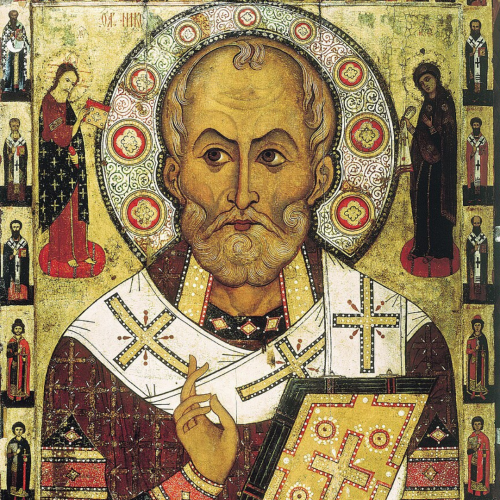
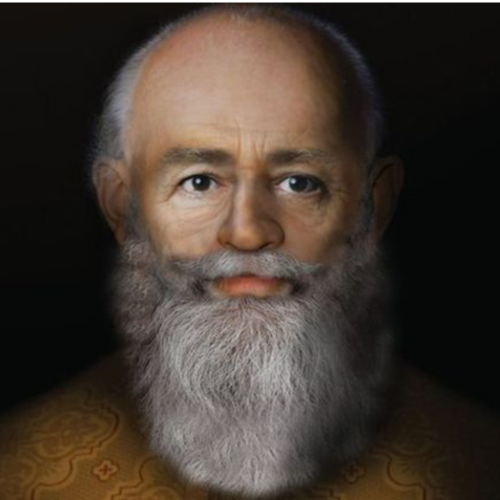
However, Saint Nicholas had to face extreme pain and difficulty, himself. It is said that during the Great Persecution [303 AD to 313 AD], which was the last and most intense persecution against the Christians by the Roman Empire, St Nicholas was tortured (and later related by Contantine the Great). In 2005, a facial reconstruction was done by anthropologist Caroline Wilkinson, then at the University of Manchester in England, that revealed the saint was “about 60 years old, 5 feet 6 inches tall, with a heavy jaw and a broken nose”…broken, most likely, due to torture.
In art over the centuries, Saint Nicholas has always been portrayed wearing long robes, with a sash bearing two crosses on both sides. And with each art period, the saint’s clothing changed in various ways. For instance, in the 13th century, he was shown in the Byzantinian art style, bedecked in gold and contrasting maroon or black. During the Renaissance, meanwhile, Italian artists dressed him in a red robe, the colour symbolising higher power…the colour made from red earth found near Venice.
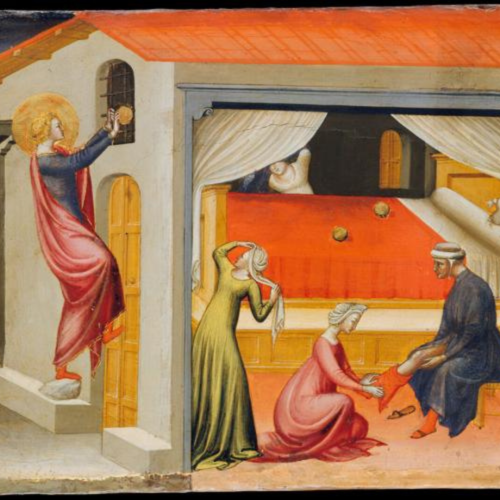
In the Netherlands, Sinterklaas or Sancte Slaus [as St Nicholas was called] was imagined to arrive from Spain, on a white horse, giving gifts to good children and spanking the badly behaved ones. But it was only In 1810 that American merchant John Pintard commissioned a portrayal of the saint, which created the first blueprint for Santa. This, he did, to promote public, organised processions for the working class to release their “pent-up” energies…public celebrations had previously been looked down upon by the Protestants.
This portrayal of the saint was still a gaunt figure, with the image showing the saint in a robe on the left, and stockings filled with presents on the right.
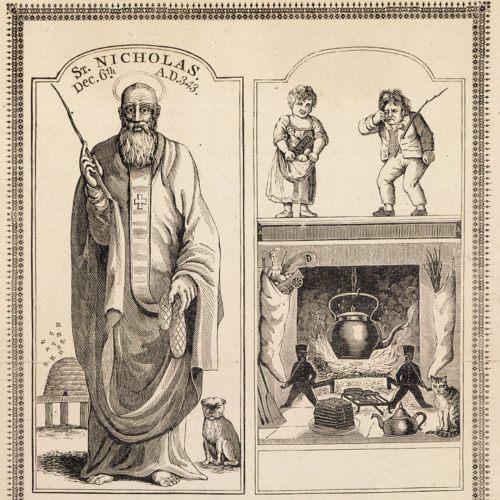
In 1923, the poem ‘A Visit From St Nicholas’ described Saint Nicholas further, with him visiting homes wot presents on a “a miniature sleigh, and eight tiny reindeer”:
“He was dressed all in fur,
from his head to his foot,
And his clothes were all tarnished with ashes and soot.”
But Santa’s red outfit was still not finalised. In 1864, a sketch of Santa Claus showed him dressed in yellow…the red outfit was yet to become his formal get up.
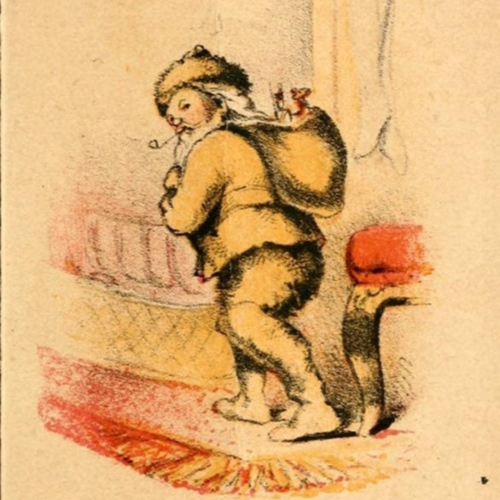
It was only in the 1870s that German-born American cartoonist Thomas Nast showcased him in a red suit with white trims and a black belt. Previously, Thomas had made a sketch of Santa for Harper’s Weekly in 1862, where the figure comes to deliver presents to a Union army camp. HIs later sketch for the publication, ‘Merry Old Santa Claus’, visually defined the jolly old man, which drew inspiration from his own German traditions.
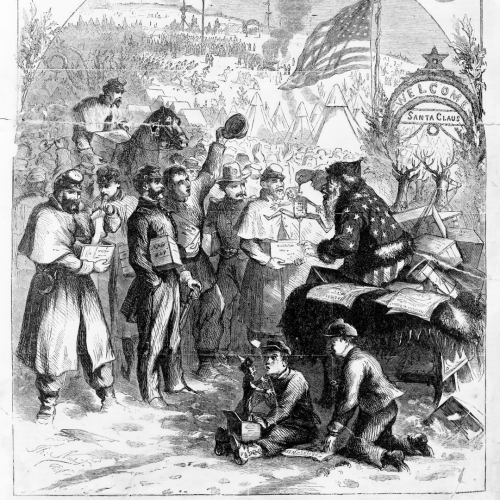
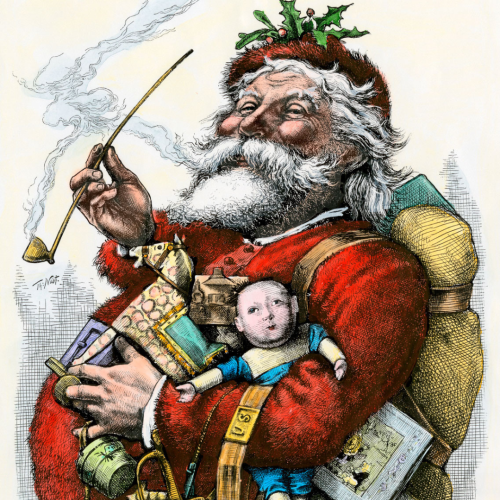
Another major contributor to the image of Santa Claus can be found in the illustration of the “Ghost of Christmas Present” for the iconic novel by Charles Dickens, A Christmas Carol (1843). This sketch, made by British illustrator John Leech, showed him in a green robe with white fur, in comversaation with Scrooge.
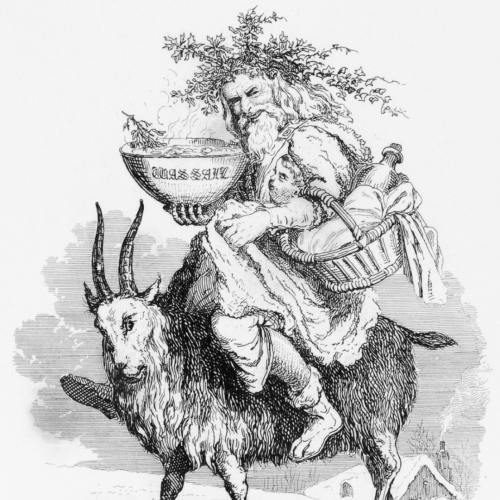
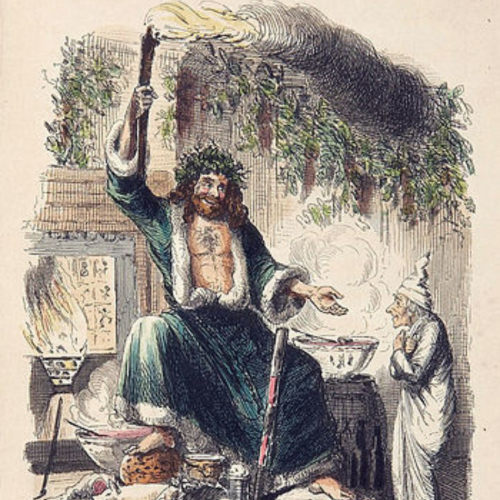
Finally, in 1931, it was Coca Cola that really made a firm presence for Santa Claus as we know him today. The beverage brand released an ad titled ‘Thirst Knows No Season’, created by American artist Haddon Sundblom of Swedish and Finnish descent. This santa was stout and dressed in the colours of the iconic drink. As the artist continued creating this yearly image for decades, we got a happy figure to celebrate.
And as they say, he’s a jolly ol’ fellow…
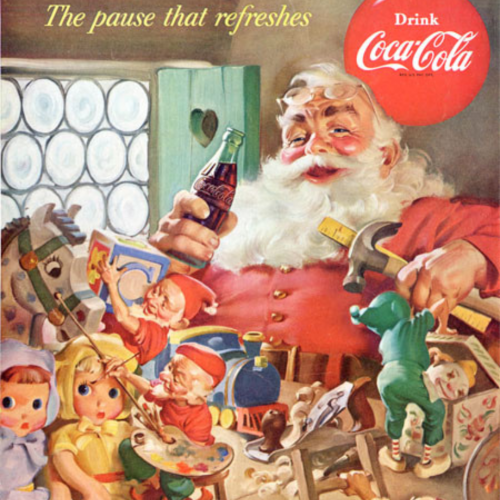
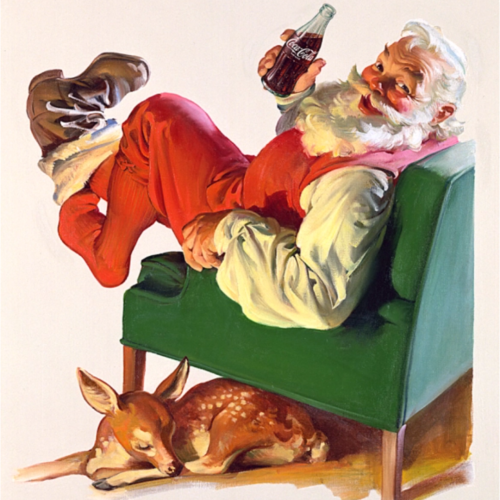
READ MORE
- Hyderabad Welcomes a Luxurious, New Residential Community With Signature Estates
- The Word. and Bumble Celebrated An Evening Of Scent, Sparks, and Mutual Connections
- How The Bicester Collection Quietly Became the Fashion Insider’s Best-Kept Shopping Secret
- Gauri Khan, On Her New Experience Centre In Delhi, Her Favourite Spot At Home, and Great Décor Advice
- With IRTH’s New Store in Noida, The Brands Adds To Its Joyful Delights





